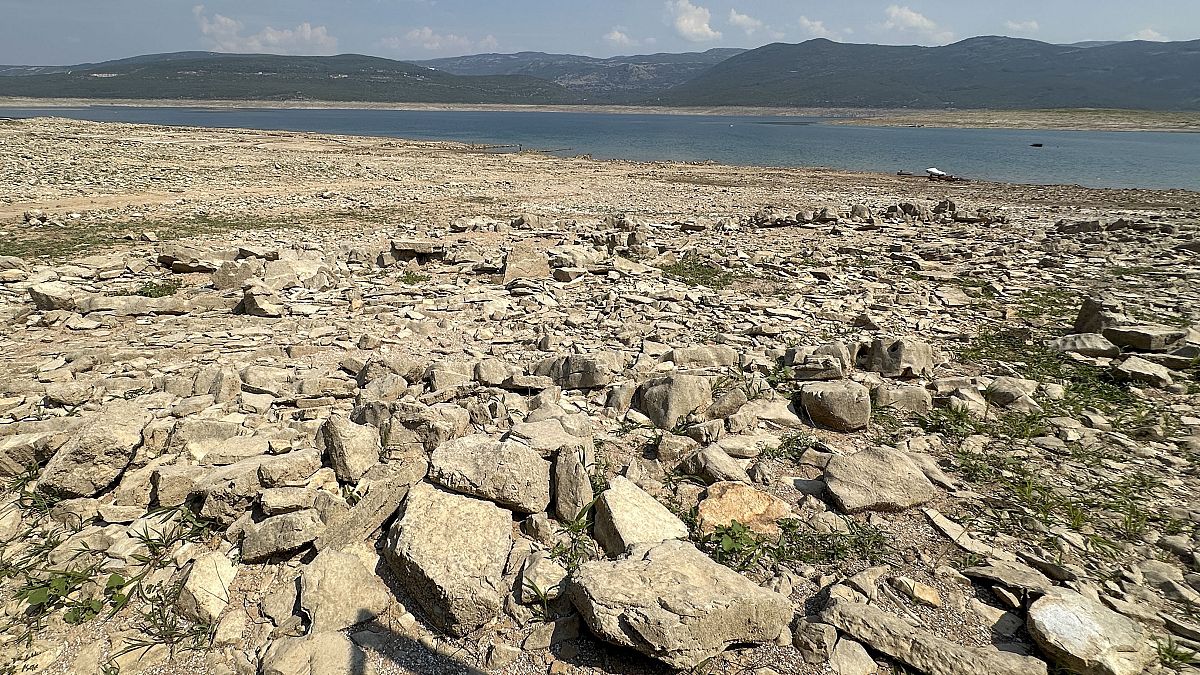The summer of 2024 has proven to be the hottest on record in Europe, according to the European climate service Copernicus. This scorching heat has led to record droughts in countries such as Poland and Bosnia. In the Balkans, temperatures have soared above 30 degrees Celsius for long periods without relief at night, pushing average temperatures to unprecedented levels. This lack of rain and high temperatures has become the norm throughout July and August, disrupting the usual pattern of heat and storms that summer typically brings.
In Bosnia, the dire effects of the prolonged heatwave are evident in the critically low water levels of lakes and rivers. The electricity industry, which relies heavily on hydroelectric power, is facing challenges as lakes such as Bileca and Jablanica have dropped significantly below their average levels. The Trebisnjica Hydroelectric System company, which manages four power plants using the waters of Bileca Lake, has seen a dip in the lake’s elevation by 7 meters. This has impacted not only the energy sector but also the local tourism industry, as lakes that are usually popular spots for swimming have dried up, leaving residents and visitors stranded on scorched land.
The situation in Poland is no better, as the Vistula river in Warsaw hit a record low of 24 centimeters, the lowest in history. Hydrologists had been predicting this extreme drop due to prolonged lack of rainfall and high temperatures. In fact, 71% of hydrological stations in the country have reported low water levels, with 295 stations indicating hydrological drought. This has significant implications for agriculture, as crops depend on consistent water supply for growth. As rivers dry up and water levels plummet, the livelihoods of many in the region are at stake.
The impact of the drought extends beyond the immediate concerns of the energy and agriculture sectors. Climate scientists like Bakir Krajinovic from Bosnia’s Hydrometeorological Institute are calling for urgent action to address the challenges brought on by climate change. He emphasizes the need for countries to learn from the experiences of others and prepare for more frequent and intense periods of extreme weather in the future. As the effects of climate change become more pronounced, it is crucial for nations to adopt sustainable solutions and mitigation strategies to safeguard their economies and the well-being of their populations.
The current situation in Europe serves as a stark reminder of the urgent need for global action to combat climate change. As countries grapple with the impact of extreme weather events, it is clear that a coordinated and proactive response is essential to mitigate the effects of rising temperatures and dwindling water resources. By investing in renewable energy sources, improving water management practices, and adopting climate-resilient policies, countries can minimize the risks associated with climate change and build a more sustainable future for generations to come.
In the face of record-breaking heatwaves and droughts, Europe is at a critical juncture where decisive action is needed to mitigate the impact of climate change. The challenges posed by dwindling water resources and soaring temperatures require a multifaceted approach that encompasses sustainable energy production, water conservation, and climate adaptation strategies. By working together to address these pressing issues, countries can pave the way for a more resilient and environmentally conscious future.











